8 Oscar-winning films to watch in isolation
Ordinarily, a glorious sunny day would be the ideal time to get outside and blow away the cobwebs. Under current circumstances, however, many of us will be treating every day like a wet weekend by sticking indoors.
When you’ve finished your home workout, exhausted the board games, and discovered your jigsaw’s missing three edge pieces, what better time is there to while away an afternoon with a classic film?
Perhaps you have an old favourite or actually need to watch the critically-acclaimed masterpieces you’ve spent years pretending to be a fan of.
In And the Academy Award Goes To… Paul Gambaccini tells the gripping, unexpected, sometimes-scandalous stories behind award-winning films. From Casablanca to 12 Years a Slave, here are eight Oscar-winning titles with fascinating back-stories available to stream from home. Listen to Paul’s accompanying episodes, and test your new cinematic knowledge with The Oscars Film Quiz.
-
![]()
Listen to And the Academy Award Goes To...
Paul Gambaccini traces the history of the Oscars and tells the story behind award-winning films.
Casablanca (1942)
After all these years Casablanca remains just as powerful and surprisingly relevant.
Though Casablanca may be packaged as a love story between bar owner Rick Blaine (Humphrey Bogart) and his former lover Isla Lund (Ingrid Bergman), beneath the romance lies a hard-hitting thriller, a story of war and sacrifice. Paul Gambaccini thinks he’d still have tipped Casablanca as Best Picture back in 1944. After all these years, it remains just as powerful and surprisingly relevant.
Listen to And the Academy Award Goes To… Casablanca here.
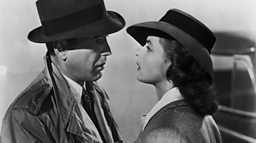
All About Eve (1950)
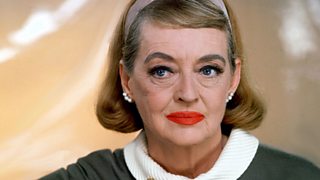
After winning Worst Actress of the Year from the San Francisco Critics Circle, Bette Davis made a comeback with All About Eve, which received 14 Oscar nominations and six wins. All About Eve tells the story of an obsessed young fan ingratiating herself with her idol Margo Channing, a Broadway star on the wrong side of 40. Though Davis wasn't awarded the third Oscar she so coveted, she did win the affections of her on-screen love interest Gary Merrill, who went on to become her third husband. Listen to Paul Gambaccini on All About Eve, possibly the bitchiest movie ever.
West Side Story (1961)
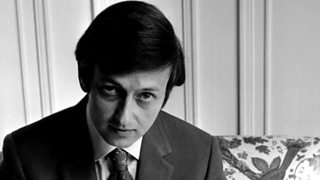
West Side Story takes its inspiration from Romeo and Juliet to tell the tragic tale of rival street gangs. Instantly-recognisable songs, big hair, bright colours, and Jerome Robbins’s spectacular choreography all add to the drama of this musical, which tackles tough social issues and teen romance. The drama spread off-screen too, with vicious arguments, voice dubbing and issues over racial casting. Despite its behind-the-scenes controversies, the film received 10 Oscars. Missing your regular exercise? West Side Story will see you dancing around the living room in no time. Want to be in America? Listen to And the Academy Award Goes To…West Side Story here.
Lawrence of Arabia (1962)
It is a masterpiece that presents box office no-nos, such as a morally ambiguous hero and that hero's death.Paul Gambaccini
Gambaccini describes Lawrence of Arabia as “much more than a lengthy biopic with a Shakespearean actor in the lead role, it is a masterpiece that presents, in a form palatable to the mass audience, box office no-nos such as a morally ambiguous hero, that hero’s death, racism and a male rape.” The film, told in two parts, recounts the life of T.E. Lawrence, opening with his death, before travelling back to recount his experiences in the Ottoman Empire during the First World War. It is renowned for its beautiful cinematography (for which it received an Oscar), with shots of sand and sky that were collected over two years spent on location. And these astonishing vistas weren’t the only aspect of the film noted for their beauty; Noel Coward reflected on Peter O’Toole (who played the titular role) that “if he had been any prettier it would have been Florence of Arabia”. Find out more about how David Lean’s epic won the Best Picture award in 1963.

The Godfather (1972) and The Godfather Part II (1974)
What started as a trashy novel turned into a movie that many consider to be one of the greatest of all time – The Godfather, a relatively low-budget movie which then led to an even more successful sequel. This violent "family" mafia movie may be critically acclaimed, but leading man Marlon Brando snubbed his Academy Award for Best Actor. Brando’s objections were due to the depictions of Native Americans in Hollywood – he sent Sacheen Littlefeather in his place to refuse the award, leading to a legendary moment in the history of the Oscars. Listen to Paul Gambaccini on The Godfather and The Godfather Part II.
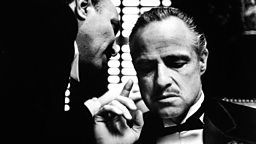
Chariots of Fire (1981)
If you can’t go out running as much as you’d like, perhaps add classic anti-establishment film Chariots of Fire to your To Watch list. The film opens with the now-iconic shots of runners striding through ice-cold waves on a beach underscored by Vangelis’s unforgettable soundtrack; a scene which has been much-parodied since. Set in 1924, this British film focuses on two real Olympic hopefuls: Eric Liddell (Ian Charleson) a Christian running for the glory of God, and Harold Abrahams (Ben Cross), a young Jew running to defy the anti-Semitism that socially excludes him. Listen to And the Academy Award Goes to…Chariots of Fire.

Titanic (1997)
A three-and-a-half hour tear-jerker, Titanic is a must-watch on a long, rainy afternoon (or indeed a sunny one, it makes no difference when you're in isolation). Director James Cameron became obsessed with diving to the wreck of Titanic, and after visiting it more than any other human, he felt compelled to tell its story.
The vast scale of the film required an equally prodigious budget. Its $200 million production gave it the title of most expensive film ever made, but money can’t necessarily buy happiness – there were arguments and walk outs among the cast and crew. Team work prevailed, though – Titanic went on to become the biggest grossing film of all time. Paul Gambaccini explores the tears and triumphs that surrounded Titanic’s production.

12 Years a Slave (2013)
A harrowing, brutal watch, 12 Years a Slave is nonetheless a must-see a film. It is based on the memoir of Soloman Northup, an abolitionist who, though born free, was kidnapped and sold into slavery in the States. This important film made Oscars history when Steve McQueen became the first black producer to win the Academy Award for Best Picture. Listen to Paul Gambaccini on 12 Years a Slave.
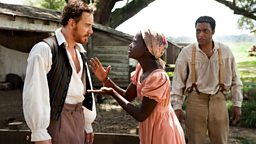
More from Radio 4
-
![]()
Listen to And the Academy Award Goes To...
Paul Gambaccini traces the history of the Oscars and tells the story behind award-winning films.
-
![]()
The Business of Film with Mark Kermode
Film critic Mark Kermode reveals the economic realities behind the film industry.
-
![]()
Desert Island Discs: Steve McQueen
Kirsty Young's castaway is the artist and film-maker Steve McQueen.
-
![]()
Test your knowledge with The Oscars Film Quiz
How well do you know your Academy Award winning films?




